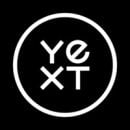Sydney Shrum, an account manager at financial data org PitchBook, doesn’t just want prospects to experience an “aha!” moment while conducting product demos.
“Ultimately, I want them to ask themselves, ‘If I don't have this, and others do, what could I be missing out on? What could that mean in the future for the business?’” Shrum said.
According to Shrum, that realization underlies a successful, value-added product demo. Getting there, though, relies on diligent prep work — a point echoed by her fellow sales experts.

“The key to a successful demo is successful discovery,” said Cameron Dudley of Yext, a platform that helps brands manage their online information. That can help lead to a more relevant demo that lays out a “compelling case” for how their product can address a need, according to the senior account executive.
Like Shrum and Dudley, Celonis team member Susan Price Lucero emphasized the importance of gathering the necessary information prior to the meeting. Additionally, she utilizes dry runs, pre-demo Zoom testing and other practices to ensure smooth sailing during the presentation itself, which she then rounds out with post-demo follow up.
“Afterward, I set up a SmartLink on LinkedIn Sales Navigator with the presentation and follow-up materials I promised the customer,” she said.
As the trio discussed, an effective demo doesn’t just rest squarely on the attributes of the product itself — but, rather, carrying out the requisite prep work and practice ahead of time to deliver a quality presentation that speaks to what the prospect wants.
How do you prepare ahead for a product demo with a prospective customer?
To prepare for a demo, I focus on three things: content, technical and outcome.
For content, I research the customer to gain a deeper understanding of their priorities. On a prospect’s investor relations webpage, you can learn about the company’s strategy and challenges by reviewing the management discussion in the 10-Q SEC filing, listening to quarterly earnings conference calls and reviewing their presentations at recent analyst conferences. I also read recent company press releases, which can sometimes uncover key nuggets in the management quotes, and research my demo participants on LinkedIn.
Technical preparation is making sure the presentation and product demonstration are flawless. I’ll walk through the demo 20-30 minutes prior to the call, opening up multiple tabs in my browser with the flow I intend to use. It’s also important to make sure Zoom is set up to optimize the experience for remote participants; I’ll test it ahead of time. Once the conference call begins, I’ll drag the photo gallery of participants under the camera lens. This creates the illusion of better eye contact and helps me better connect with my customer. Also, I use a ring light to enhance the image, eliminating unflattering shadows.
Lastly, outcome: What do I want from the customer as the outcome of this presentation? Knowing what I want, and stating this goal up front and again at the end, is critical to making sure this presentation further qualifies the customer and moves the sales cycle forward. I’ll write this on a sticky note to make sure I don’t lose sight of the goal during the presentation.
To prepare for a demo, I focus on three things: content, technical and outcome.”
How do you demonstrate to a potential customer that your product can solve a particular problem for them?
One of my customers had spent a lot of time and money with consultants mapping out their ideal processes in a third-party business process mapping tool but had no way of determining if they were adhering to best practices. They struggled with on-time deliveries to their customers. I demonstrated how our “Conformance Checker” could not only identify the root causes of their issues but also the impact it was having on their KPIs.
What's the single most important piece of advice you'd give to another salesperson who's looking to master the product demo?
Practice makes perfect. Early in my career here, my confidence demoing the product improved at a tradeshow, where I had to demo Celonis every 30 minutes for three days straight. When new product capabilities come out, I force myself to practice out loud multiple times until I have internalized the talking points.
How do you prepare ahead for a product demo with a prospective customer?
Generally, I look over any background information I have on the person I’m going to be demoing, including what firm they work at, their role, how they got in touch with me/PitchBook and their interest areas. Often, I’ll have some background information on what they are interested in seeing during the demo. For unique cases, I'll prep some searches in the PitchBook Platform ahead of time to make sure we’re efficient with the time we have.
If I don’t have a ton of background on the client, I'll look through old calls with people in similar roles at the firm to see what “aha!” moments they had; that way, I can figure out if it's relevant for this person as well. In order to make a key discovery with the prospect, it’s essential we focus the demo time on what will be most relevant for them.
If you want to master the demo, master the discovery.”
How do you demonstrate to a potential customer that your product can solve a particular problem for them?
The first step is uncovering the layers of a problem that the person is facing. When a prospective client says they need a better source to track private companies, that's something we can fix — but, it's not necessarily the problem.
From there, I ask prospects what process they have right now. Usually, they have no tools or resources, which is also something that needs to be fixed. By not having access to a useful tool, the real problem could be that they missed out on a big investment opportunity because they had no insights into the private markets. This led to their fund underperforming, which caused other problems. Getting the prospective client to that “aha!” moment on the call is great — but ultimately, I want them to ask themselves, “If I don't have this, and others do, what could I be missing out on? What could that mean in the future for the business?”
What's the single most important piece of advice you'd give to another salesperson who's looking to master the product demo?
If you want to master the demo, master the discovery. It's easy to get excited about your product, what you have to offer and all the cool, shiny things that you can show prospects. But just because you have all the things doesn't mean the prospect needs all the things. While it might all be useful to an extent, understanding what would be most valuable and help fill immediate gaps in their current process will ultimately lead to a successful demo.
How do you prepare ahead for a product demo with a prospective customer?
The key to preparing for a product demo is doing the necessary research about the brand. It’s important to understand what their experience looks like today and how your solution will help them achieve their goals. I also spend time personalizing the demo environment to reflect the prospect’s brand, adding the company logo, incorporating branding and weaving in key company facts. I find this helps the prospect better visualize what their experience could look like if implemented.
You need to have a clear understanding of what the prospect cares about and how it will provide value.”
How do you demonstrate to a potential customer that your product can solve a particular problem for them?
The key to a successful demo is successful discovery. You need to have a clear understanding of what the prospect cares about and how it will provide value. Once you understand the value, you can cater the demo to show how your solution will play a role in their success. Additionally, I find it helpful to engage with the prospect during the demo by asking questions like “How do you see this fitting into your business?” or “How is this resonating with you?”
For example, I recently had a demo with the CMO of a California healthcare system. The CMO and marketing manager — who was my champion — both had very different priorities and visions of Yext fitting into their business strategy. It was really important that I prove value to both of them as I was demoing the platform.
What's the single most important piece of advice you'd give to another salesperson who's looking to master the product demo?
Do quality discovery in advance — not only to know the state of the prospect’s current experience but to map out what a future state could look like. This will help any salesperson walk into a demo with a clear plan of action and be able to present a compelling case around the prospect’s challenges.
Being prepared is also critical to keeping the prospect engaged throughout the demo with validating questions about how they see your solution driving value or what their hesitations might be. Some of these questions will come to you during the demo, but doing your research in advance will allow you to have some informed go-to’s in your pocket.











